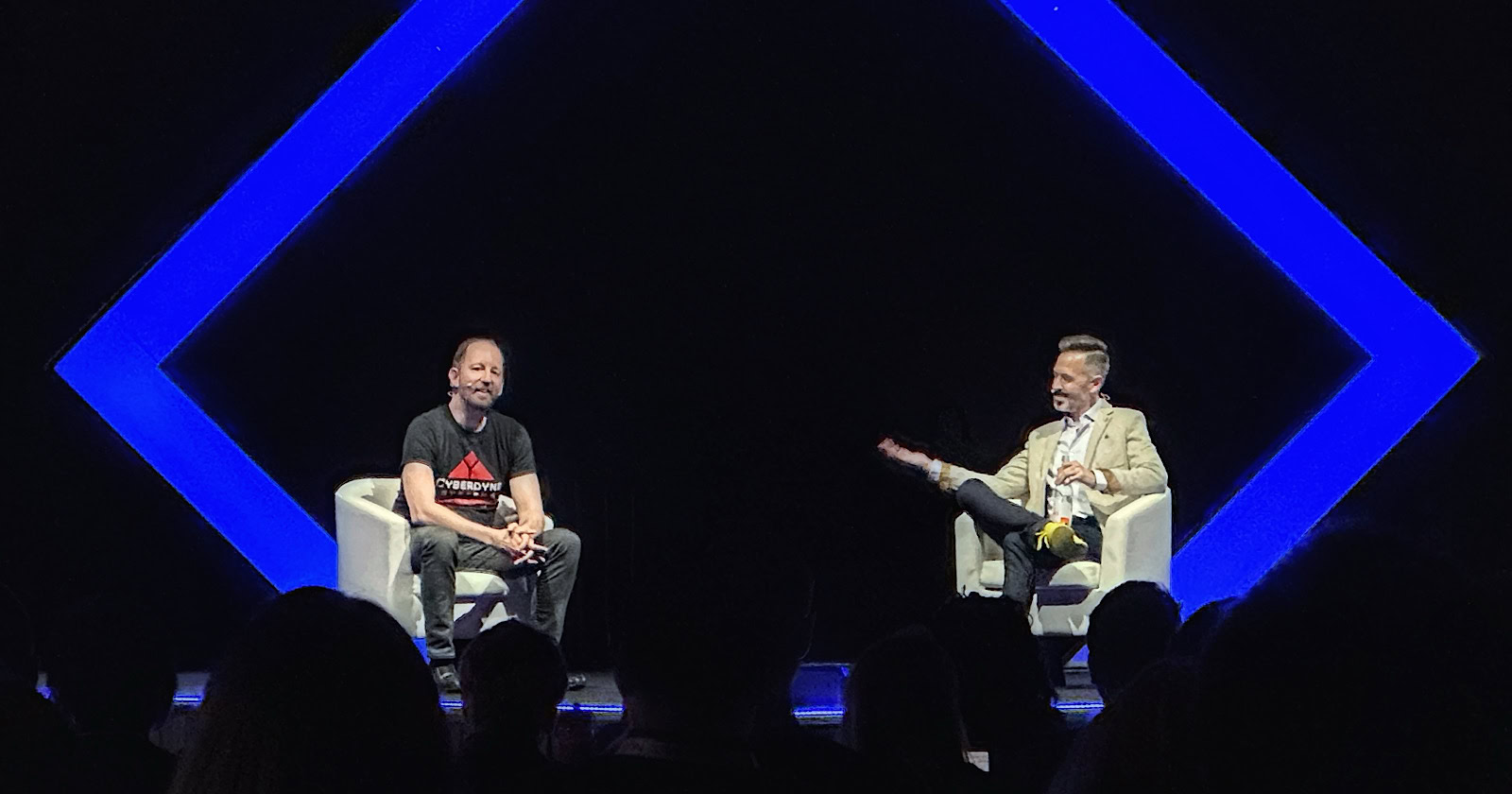At the MozCon industry conference this week, Rand Fishkin, the outspoken former CEO of Moz and founder of SparkToro, shared his opinion on how SEOs and marketers should potentially adjust strategies based on his interpretation of the recent Google API leaks.
In a packed session with Dr. Pete Meyers, Fishkin laid out specific ways he believes the leaked information, which has not been verified, could impact best practices.
Fishkin firmly believes the leaks contradict Google’s public statements about its systems.
“Google has been unkind and unfair. They have been abusive about this,” Fishkin stated, though these are his opinions based on reviewing the leaks.
On Google’s lack of transparency, Fishkin states:
“Google has told us off and on that they don’t use clicks for ranking. And I always heard it, maybe this is charitable on my part, as we don’t use capital ‘C’ clicks for capital ‘R’ ranking. And the truth is, I think even that was charitable on my case.
And we’ve seen in not just these documents, but anyone who’s familiar with Andrew Navick’s testimony last year, it’s really confirming a lot of what we saw, a lot of what we saw with Navboost.”
He adds:
“They have lied through either omission or misinformation.”
Fishkin’s Recommendations
Fishkin admittedly speculated and provided concrete examples of how SEO strategies could change if his interpretations of the leaks were accurate.
However, these are his opinions, not directives. Among his potential recommendations:
1. Invest In Author/Entity Authority
Surprised by the continued emphasis on authorship and entity signals in the leaked code, Fishkin said brands should prioritize hiring writers with established reputational authority that Google already associates with quality content.
Fishkin said this is what he’s going to do differently:
“We’re going to hire a content marketer, basically a part-time content person, to make sure that the SparkToro blog has a couple of new posts on it every week.
And all that authorship and entity stuff made me think we should find someone who already has a profile.”
2. Supplement Link-building With Public Relations
According to Fishkin, the leaks uncovered potential evidence that Google devalues links to sites without sufficient brand awareness and search volume.
As a result, he recommends accompanying traditional link acquisition with broader brand-building efforts like PR and advertising to increase branded search demand.
Fishkin stated:
“If you get a whole bunch of links in one day and nothing else, guess what? You manipulated the link graph.
If you’re really a big brand, people should be talking about you.”
3. Embrace Geographic Nuance
With abundant references to geographic and country-specific signals throughout the code, Fishkin cautioned against one-size-fits-all global strategies.
What works for major markets like the US may prove ineffective for smaller regions where Google needs more data.
Fishkin advised attendees:
“I would encourage you to think about SEO as being more geographically specific than you think it is even for web search results.”
4. Rediscover Experimentation
More than anything, Fishkin hopes the leaks will catalyze a renewed sense of curiosity and skepticism within SEO.
On the value of experimentation, Fishkin says:
“We’ve seen it over and over. One thing we’ve lost, I feel like, is that spirit of experimentation. And with these things coming out where I don’t think we can take what Google says for granted, how do you see, how do we get that back?”
He challenged practitioners to move beyond regurgitating Google’s public statements and instead embrace testing to uncover what drives results.
Referring to an unexplained metric surfaced in the leaks, Fishkin states:
“My dream would be that if I were to come back to MozCon next year, somebody would be on this stage, and they’d be like, ‘Guys, I figured out what Keto score is. Publish that. I’ll amplify it.”
A Wakeup Call?
In many ways, Fishkin framed the leaks as a pivotal moment for an industry he believes has grown insular, conflict-averse, and too accepting of Google’s carefully crafted narratives.
His call to action left some energized and others put off by its unrestrained bluntness.
But whether one admires Fishkin’s brash delivery or not, the leaks have undeniably cracked open Google’s black box.
For those willing to dig into the technical details and chart their path through testing, Fishkin argues lucrative opportunities await those who stop taking Google’s word as gospel.
A Word Of Caution Regarding The Google API Leak
Doubts have emerged about the true nature and significance of this “leak.”
Evidence suggests the data may be connected to Google’s public Document AI Warehouse API rather than exposing the ranking system’s inner workings. The information also appears to be at least five years old.
While Fishkin’s plans to adjust his SEO tactics are interesting, they should be taken with a grain of salt, given the ongoing debate over what the data really signifies.
It illustrates the importance of vetting sources when evaluating any supposed “insider information” about how search engines operate.
As the discussion around the Google “leak” continues, be careful not to fall victim to confirmation bias—seeing the data through the lens of pre-existing theories rather than objectively assessing it.
Featured Image: Taken by author at MozCon, June 2024.





